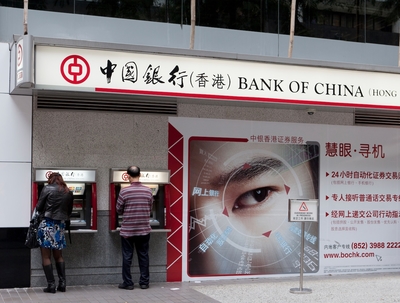
As China’s banking system continues to liberalize and become more international, foreign investors have increasing flexibility over the management of funds. For Example, British payment systems firm VocaLink has formed a five-year deal with China’s UnionPay, the only domestic bank card-issuing company in China and one of the biggest card issuers in the world. With more than 5.4 billion UnionPay bank cards currently in circulation, the deal will greatly improve Chinese bank account holders’ international connectivity, granting access to Europe and the U.K.’s vast ATM network. However, China’s banking system remains complex, and many restrictions apply to foreign investors. The following article lays out the steps and options foreign investors must consider when opening a Chinese bank account.
Account Types
Foreign-invested entities (FIEs) in China need to establish a minimum of two bank accounts:
- A renminbi (RMB) basic account—An FIE must have one (and only one) RMB basic account for daily business operations in China. This account is the only account from which the company can withdraw RMB cash. The RMB basic account often acts as a designated account for making tax payments.
- A foreign currency capital contribution account—An FIE also must have a foreign currency capital contribution account to receive capital injections from foreign investors. Approval to open this account can be obtained from the State Administration of Foreign Exchange (SAFE). Additional general RMB accounts and other types of foreign currency accounts can be opened for different purposes. For foreign currency accounts, these may include a settlement account for the collection of current items in a foreign currency, foreign debt special accounts, and temporary capital accounts.
International and Chinese Banks
Foreign investors can establish the above accounts in China with international banks with a local presence (the major banks being Bank of East Asia, Citibank, DBS Bank, Hang Seng Bank, HSBC, and Standard Chartered); or through a Chinese bank (the largest being Industrial and Commercial Bank of China, Bank of China, China Construction Bank, Agricultural Bank of China, and Bank of Communications).
Foreign investors in China often prefer to establish an account with an international bank because of an existing business relationship. However, establishing accounts with a Chinese bank has a number of advantages, namely:
- The application process for opening a bank account with an international bank in China will be more document-intensive and take longer compared to opening such an account at a Chinese bank;
- There are substantially more Chinese commercial banks than foreign bank branches, which allows for more convenient and faster RMB remittance;
- Most Chinese companies have local bank accounts. Conducting transactions with them will be easier and faster if done from a Chinese bank instead of an international bank; and
- Chinese banks generally offer greater bank account security.
When opening a bank account in China, an FIE will need to specify what will act as the “signature” of the company. Usually the company’s financial chop (seal) is required to do so, along with either the legal representative’s chop (or chief representative’s chop for a representative office) and a handwritten signature. Banks generally prefer using the legal representative’s chop instead of a handwritten signature, as the latter is easier to forge and more difficult to verify.
Many bank transactions can now be done online in English, including the approval of transactions and viewing account balances from abroad. It is possible and sometimes necessary to make tax payments online in certain areas (including Beijing) by signing a three-party agreement with an authorized Chinese bank.
For an entity’s RMB basic account, it is possible to apply for different levels of e-banking access and multiple security keys (in the form of a key-ring/USB dongle)—one with access rights and another with approval rights. Another common security measure is a device that generates a new password for every check that is written.
Since its establishment in 1992, Dezan Shira & Associates has been guiding American investors through Asia’s complex regulatory environment and assisting them with all aspects of legal, accounting, tax, internal control, HR, payroll and audit matters. As a full-service consultancy with operational offices across China, Hong Kong, India and emerging ASEAN, including liaison offices in Boston and Waltham specifically established to support our American clients, we are your reliable partner for business expansion in Asia and beyond. For inquiries, please email us at [email protected]. For further information about our firm and how we can support American investors in Asia, please visit our North American Desk.